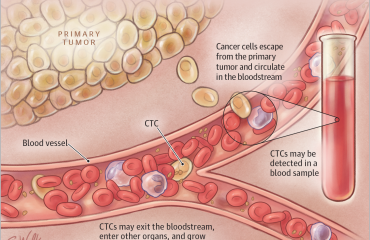Excerpted from: Rethinking Gender-Specific Medicine
One of the most unexpected and valuable benefits of thinking so deeply and meticulously regarding the nature of women’s biology, surprisingly, has been a new view of how to investigate the unique biology of men. Instead of simply assembling male cells, animals or humans for scientific investigation to answer questions and test hypotheses that we assumed would be identical for both sexes, we are asking very different questions about men than we have ever asked before. What are the particular problems of males? How can the information we’ve learned about women be applied to the prevention and amelioration of illness in men? Even the willingness to consider men unique, to look at their issues with the same exclusionary concentration that we have used in our exploration of women is shaping a whole new field of scientific investigation. Here are some of the more fascinating facts about men that are unique to their sex – facts that should prompt us to formulate and address proposals, and in doing so, improve the quality and, importantly, the length of men’s lives.
Men have only one X chromosome. Women enjoy the luxury of two, in spite of the phenomenon of lyonization, in which one of the two is randomly chosen for inactivation and the genes carried on it extensively silenced. Some, however, remain active. These ‘surviving’ genes may have profound effects on structure and function, either directly or through their governance and modulation of other genes. Moreover, lyonization is incomplete until the time of implantation, and this double complement of the genes that are responsible for virtually every aspect of tissue organization and function may give the female not only a different early physiology compared with the male, but a distinct survival advantage. Lyonization also produces what might be viewed as a heterogeneous reserve of genetic material in the female, since the silencing of one of the pairs of X chromosomes is random and not the same for all cells. An equally fascinating difference between the two sexes is the result of the phenomenon of imprinting, in which some genes transmitted to the fetus are expressed only from the maternal allele and others only from the paternal allele. Since the female has an X chromosome from each parent, she can transmit both paternal and maternal X-linked genes; males can only transmit their X-linked genes to females and not to males. These are only a few of the profoundly important sex-specific aspects of mammalian biology that may have far-reaching effects on function and length of life. It is clear that the male fetus is more fragile than the female and, for poorly understood reasons, becoming more so: even though there are more males conceived than females, the ratio of surviving males to females is decreasing throughout the industrialized world 1. In Japan, for example, the male-female ratio of miscarriage has increased steadily from 1.34 in 1972 to 1.72 in 19962. Certainly, the molecular biology of fertilization and implantation would prove a fascinating and important area of future gender-specific investigation.
Legato MJ. Rethinking Gender-Specific Medicine. Women’s Health. 2006;2(5):699-703. doi:10.2217/17455057.2.5.699
1. Davis DL, Gottlieb MB, Stampnitzky JR: Reduced ratio of male to female births in several industrial countries. JAMA 279(13), 1018–1028 (1998).
2. Mizuno R: The male/female ratio of fetal deaths and births in Japan. Lancet 356(9231), 738–739 (2000).
Marianne J. Legato, MD, Ph. D. (hon. c.), FACP is an internationally renowned academic, physician, author, lecturer, and pioneer in the field of gender-specific medicine. She is a Professor Emerita of Clinical Medicine at Columbia University College of Physicians & Surgeons and an Adjunct Professor of Medicine at Johns Hopkins Medical School. Dr. Legato is also the Director of the Foundation for Gender-Specific Medicine, which she founded in 2006 as a continuation of her work with The Partnership for Gender-Specific Medicine at Columbia University. She received an honorary PhD from the University of Panama in 2015 for her work on the differences between men and women.
At its core, gender-specific medicine is the science of how normal human biology differs between men and women and how the diagnosis and treatment of disease differs as a function of gender. Dr. Legato’s discoveries and those of her colleagues have led to a personalization of medicine that assists doctors worldwide in understanding the difference in normal function of men and women and in their sex-specific experiences of the same diseases.
She began her work in gender-specific medicine by authoring the first book on women and heart disease, The Female Heart: The Truth About Women and Coronary Artery Disease, which won the Blakeslee Award of the American Heart Association in 1992. Because of this research, the cardiovascular community began to include women in clinical trials affirming the fact that the risk factors, symptoms, and treatment of the same disease can be significantly different between the sexes. Convinced that the sex-specific differences in coronary artery disease were not unique, Dr. Legato began a wide-ranging survey of all medical specialties and in 2004, published the first textbook on gender-specific medicine, The Principles of Gender-Specific Medicine. The second edition appeared in 2010 and the third edition, dedicated to explaining how gender impacts biomedical investigation in the genomic era, won the PROSE Award in Clinical Medicine from the Association of American Publishers in 2018. A fourth edition is forthcoming.
She also founded the first scientific journals publishing new studies in the field, The Journal of Gender-Specific Medicine, and a newer version, Gender Medicine, both listed in the Index Medicus of the National Library of Medicine. She has founded a third peer-reviewed, open access journal, Gender and the Genome, which focuses on the impact of biological sex on technology and its effects on human life.
Dr. Legato is the author of multiple works, including: What Women Need to Know (Simon & Schuster, 1997), Eve’s Rib (Harmony Books, 2002), Why Men Never Remember and Women Never Forget (Rodale, 2005), Why Men Die First (Palgrave, 2008), The International Society for Gender Medicine: History and Highlights (Academic Press, 2017), and most recently, The Plasticity of Sex (Academic Press, 2020). Her books have been translated into 28 languages to date.
As an internationally respected authority on gender medicine, Dr. Legato has chaired symposia and made keynote addresses to world congresses in gender-specific medicine in Berlin, Israel, Italy, Japan, Panama, South Korea, Stockholm, and Vienna. In collaboration with the Menarini Foundation, she is co-chairing a symposium on epigenetics, Sex, Gender and Epigenetics: From Molecule to Bedside, to be held in Spring 2021 in Italy. She maintains one of the only gender-specific private practice in New York City, and she has earned recognition as one of the “Top Doctors in New York.”





